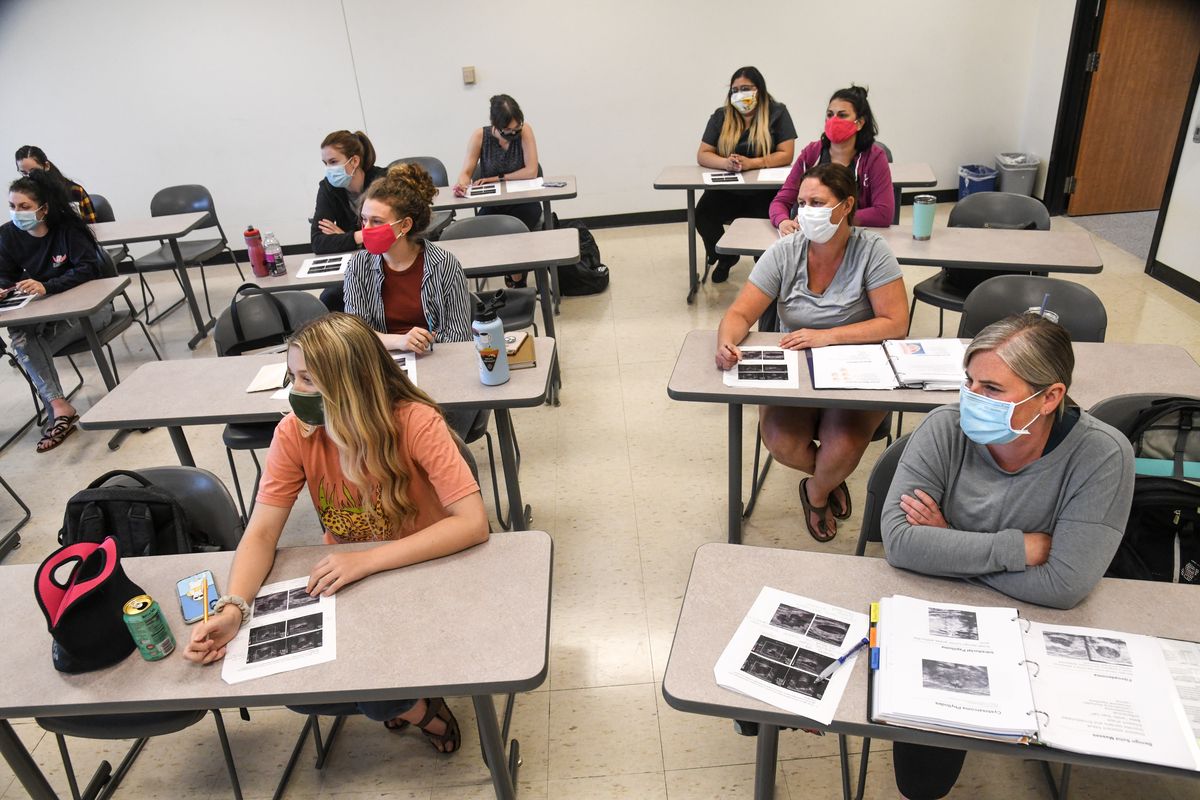Spokane, North Idaho community colleges contend with plunging enrollment during COVID-19 pandemic

Amid the COVID-19 pandemic, enrollments at nationwide community colleges dropped 10% from fall 2019 to fall 2020, according to the National Student Clearinghouse.
Locally, area community colleges weren’t spared the diminished numbers.
A total of 8,400 students attended Spokane Community College this past fall, down nearly 4,100 – or approximately 33% – from the previous year. Likewise, the number of students (4,260) that attended Spokane Falls Community College in fall 2020 was down nearly 1,100 from the previous year, or 20%.
At North Idaho College in Coeur d’Alene, the college recorded 4,741 students in fall 2020 – down 331 from 2019, according to college enrollment data.
Comparatively, headcounts at the area’s four-year colleges and universities experienced much smaller fluctuations year over year.
SFCC President Kimberlee Messina said community college students typically come from populations especially vulnerable to the effects of the pandemic. While the college has provided increased virtual access, Messina said students are dealing with other barriers, such as increased hardships with supporting their families.
“In spite of increased financial aid from the federal stimulus and excellent scholarship opportunities, students are not able to attend college in the same numbers in pre-COVID times,” Messina said in a statement.
“While many of our students report that the flexibility of the virtual learning is enabling them to continue their studies during this time, there are other students for whom the online environment simply is not adequate.”
Kevin Brockbank, president of SCC, concurred with Messina’s assessment.
Messina said college officials have tried to lessen the burden by eliminating placement testing and fees. She also said the college is engaging with K-12 partners and the community to promote their retraining programs as “the best way” for economic recovery for those who have lost their jobs.
Ultimately, Messina believes the status of the COVID-19 pandemic, and the availability of vaccines, will be the primary factors in students returning to college.
“The employment data from the pandemic makes it clear that the people who are suffering the most are those without any college education,” Messina said. “We anticipate a return to college, especially community college, to be highly likely and look forward to welcoming students back and helping them, as well as our region, in their economic recovery.”
Graydon Stanley, vice president of student services for NIC, said the uncertainty surrounding how colleges can offer classes amid the pandemic is certainly a factor.
“It’s like wanting to buy a car when it’s still on the assembly line and you don’t know what it’s going to look like,” he said.
Beyond the pandemic, Stanley said community colleges continue to contend with appealing to students as an enterprising option toward potentially lucrative careers – something institutions have dealt with for years.
Part of that effort for NIC has involved the college’s re-recruitment initiative. Stanley said the program involves reaching out to former students who, for whatever reason, left without finishing their degrees, with many just credits away.
“We have about 18 different modes in delivery of instruction now, where we had, like, three before,” he said.
“We’ve just had to adapt about how and when we deliver our educational offerings to our students. That’s not just a temporary thing. That will continue to help us even when we’re out of the pandemic.”
The Associated Press contributed to this report.